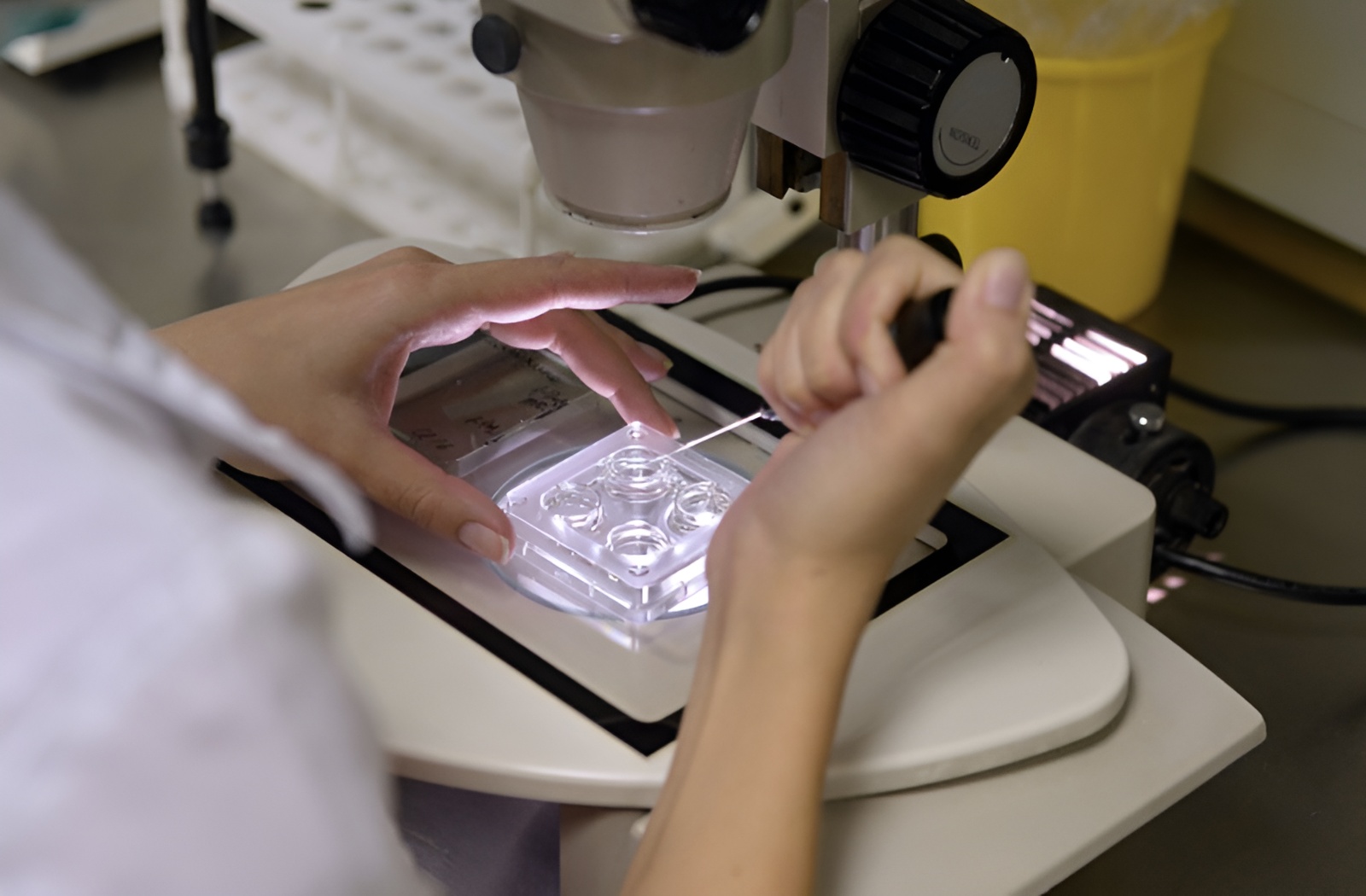What you need to know about surrogacy in Georgia
In the modern world, surrogacy is no longer taboo and is becoming an increasingly sought-after reproductive technology for many infertile couples and individuals unable to conceive. However, only in a few countries globally is surrogacy legally permitted, often with fewer restrictions, including for foreigners. One such country is Georgia, where surrogacy is clearly regulated at the legislative level.
Cost of surrogate mother services in Georgia
A surrogate mother is a woman who voluntarily agrees to carry and deliver a genetically unrelated child for a couple or person who cannot have children. After childbirth, the surrogate mother transfers the child to the biological parents.

Georgian legislation provides clear criteria for candidates wishing to become surrogate mothers.
The most important are:
- Age of the woman between 19 and 35 years.
- Excellent physical and mental health. Before approval for the surrogacy program, the woman undergoes comprehensive medical and psychological evaluations.
- The surrogate must have at least one healthy child of her own, which indicates her ability to successfully carry a pregnancy and helps prevent potential emotional challenges associated with transferring the child to the biological parents postpartum.
Georgian legislation permits both citizens of the country and foreigners to become surrogate mothers. Consequently, biological parents may be offered candidates for surrogacy from Georgia, Ukraine, Kazakhstan, Armenia, Uzbekistan, etc.
The average reward for a surrogate in Georgia can reach up to 30,000 USD. Costs vary based on pregnancy complexity, multiplicity, delivery method (natural delivery or Cesarean section), among others.
It's essential to understand that future parents, in addition to compensating the surrogate, must consider medical and organizational aspects of the program. The surrogacy process is divided into the medical component (including IVF, pregnancy management, childbirth) and the organizational component (finding a surrogate, if necessary, selecting an egg donor, overseeing the surrogate during pregnancy, handling postnatal documentation, etc.). Reproductive clinics manage the medical part of the program, while specialized agencies associated with clinics handle logistical processes. This setup is convenient for prospective parents, as they only need to approach an agency, which then handles the entire program with professionals familiar with the intricacies of this significant undertaking.
Each surrogacy program is unique, with individual requirements based on the prospective parents' needs.
Every family has specific needs, such as including embryo transport to the clinic in the program or utilizing guaranteed programs where embryo transfers to a surrogate continue until a child is born.
Cost of the most popular surrogacy programs in Georgia
|
Program |
Cost, USD |
|
|
Surrogacy with frozen embryos |
44,500 |
|
|
Surrogacy with own reproductive cells |
46,500 |
|
|
Surrogacy with donor egg |
54,200 |
|
|
Guaranteed surrogacy program with donor egg |
66,000 |
Surrogacy program payments are structured in parts, depending on the program type, biological parents are obliged to make payments according to a pre-agreed schedule.
Typically, biological parents settle payments via bank transfers. In brief: the agency handling the surrogacy program sends the biological parents invoices, usually in USD, and the parents need to make payments either through bank transfer or by visiting a bank.
To ascertain the costs specific to your case, please write to us at inbox@uamedtours.com or contact via WhatsApp, Telegram, Viber, or call at +38 068 770 61 77, +48 459 567 415. All consultations are free. Patient support is available daily without breaks. Staff members speak English, Polish, Georgian, Russian, and Ukrainian.

Brief description of the surrogacy program
It's vital to comprehend that surrogacy involves not just carrying and delivering a child but also the preparation phase and acquiring documents for the child post-birth. The process unfolds as follows:
- The initial phase involves signing a contract between the biological parents and the agency, as well as a contract between the patients and the clinic. Contracts can be signed offline in Tbilisi, Georgia, or for convenience, biological parents may proceed with remote signing.
- The next stage is the selection of a surrogate. The agency provides access to its database of surrogates who have undergone comprehensive medical and psychological screenings, verified by physicians for readiness to participate in the program. If desired, prospective parents can have a video call with the chosen candidate.
- Following the surrogate's selection, a notarized legal agreement is executed between the biological parents and the surrogate. The agreement specifies the rights and duties of both parties, payment terms, and other legal matters.
- Once all legal concerns are settled, medical examinations of the biological parents begin, preparing for the provision of biological materials (eggs and sperm). Concurrently, the surrogate undergoes medical preparation for embryo transfer.
- Following the acquisition of reproductive cells from the biological parents, embryo creation commences. In the lab, the biological mother's egg (or donor egg) is fertilized with the biological father's sperm (or donor's).
- Embryo transfer phase. After fertilization, on the 3rd or 5th day, the embryo is transferred into the surrogate’s uterus.
- Upon successful transfer and heartbeat confirmation, the pregnancy phase begins with constant medical oversight. The surrogate undergoes regular check-ups to ensure the child's appropriate development.
- Delivery. Delivery occurs at a preselected and contract-approved hospital under high-caliber medical supervision. Biological parents can attend the delivery or arrive after the child's birth.
- The final step involves legally documenting the child's birth. Post-birth, under Georgian law, the child is legally registered under the biological parents. They receive a birth certificate and return to their home country as a family.
Key Laws Regulating Surrogacy in Georgia
1. The Civil Code of Georgia. This law details the regulations concerning surrogacy, particularly stipulating that the surrogate mother cannot claim rights to the child post-birth. According to this law, individuals whose genetic material was utilized for conception are recognized as the biological parents, even if another woman carried the child.
2. The Health Protection Law of Georgia, Article 143. This article governs matters related to artificial insemination and reproductive technologies, including surrogacy. It provides legal protection for using reproductive technologies and ensures that the surrogate mother is entitled to medical supervision and support throughout the pregnancy.
3. The Law on Civil Status Registration, Articles 20-21. These provisions pertain to the registration of children born through surrogacy. They outline the procedure for registering the child post-birth, specifying that biological parents are listed as the parents on the birth certificate, not the surrogate.
Legal Aspects of Surrogacy in Georgia
1. Child Rights Exclusively Belong to Biological Parents: In Georgia, the law clearly stipulates that biological parents have complete rights to the newborn, whereas the surrogate has no post-birth rights to the child. This regulation is one of the main attractions for foreign couples opting for surrogacy in Georgia.
2. Only Gestational Surrogacy Permitted: The surrogate cannot have a biological connection to the child. She carries an embryo created from the biological or donor parents' egg and sperm.
3. Only Heterosexual Couples Can Access Surrogacy Programs: The law mandates a legally registered or civil marriage of a minimum duration of one year, with proof of cohabitation and joint household management.
4. Ensuring the rights and responsibilities of all participants necessitates signing a legal agreement between biological parents and the surrogate. This agreement, notarized as legally binding, governs all aspects of the relationship, including financial compensations, medical support, and other obligations.

Most Frequent Questions from Biological Parents on Surrogacy in Georgia
How long does it take to obtain documents for the child post-birth?
Typically, obtaining the birth certificate takes 4-5 business days. However, it's important to note that the legal process associated with the embassy starts after receiving the certificate. The duration for completing the necessary documents depends significantly on the specific embassy. uamedtours will assist parents at every stage and do their utmost to expedite the document acquisition process, though it can take up to 2 months.
Therefore, parents should be prepared for a potential 2-month stay in Georgia after the child's birth.
What documents are parents required to prepare for obtaining documentation for the newborn?
The first legal document parents will receive is the birth certificate, issued based on an official document from the reproductive clinic where the child was born. A complete list of required documents for the embassy will be provided to parents individually according to their nationality and the requirements of their embassy.
How many visits to Georgia are needed during the surrogacy program?
It varies depending on the biological parents' specific needs. Some parents choose a surrogacy program in Georgia requiring two visits: initially, to provide genetic material and sign contracts, and subsequently for the child's birth.
Others may opt for a program allowing for one visit, with contract signing and reproductive cell provision conducted remotely.
Thus, the minimum required visits to Georgia are one, post-childbirth.
How long does the surrogacy program last?
The entire process, from the initial parental inquiry to the child's birth and obtaining permission to return home, typically spans approximately 12 months.

Interesting Facts About Surrogacy
- 4 out of 100,000 cases of infertility result in children born through surrogacy.
- 40% of surrogate mothers opt to become surrogates again.
- Since 1997, over 90,000 children have been born through surrogacy methods in Georgia.









